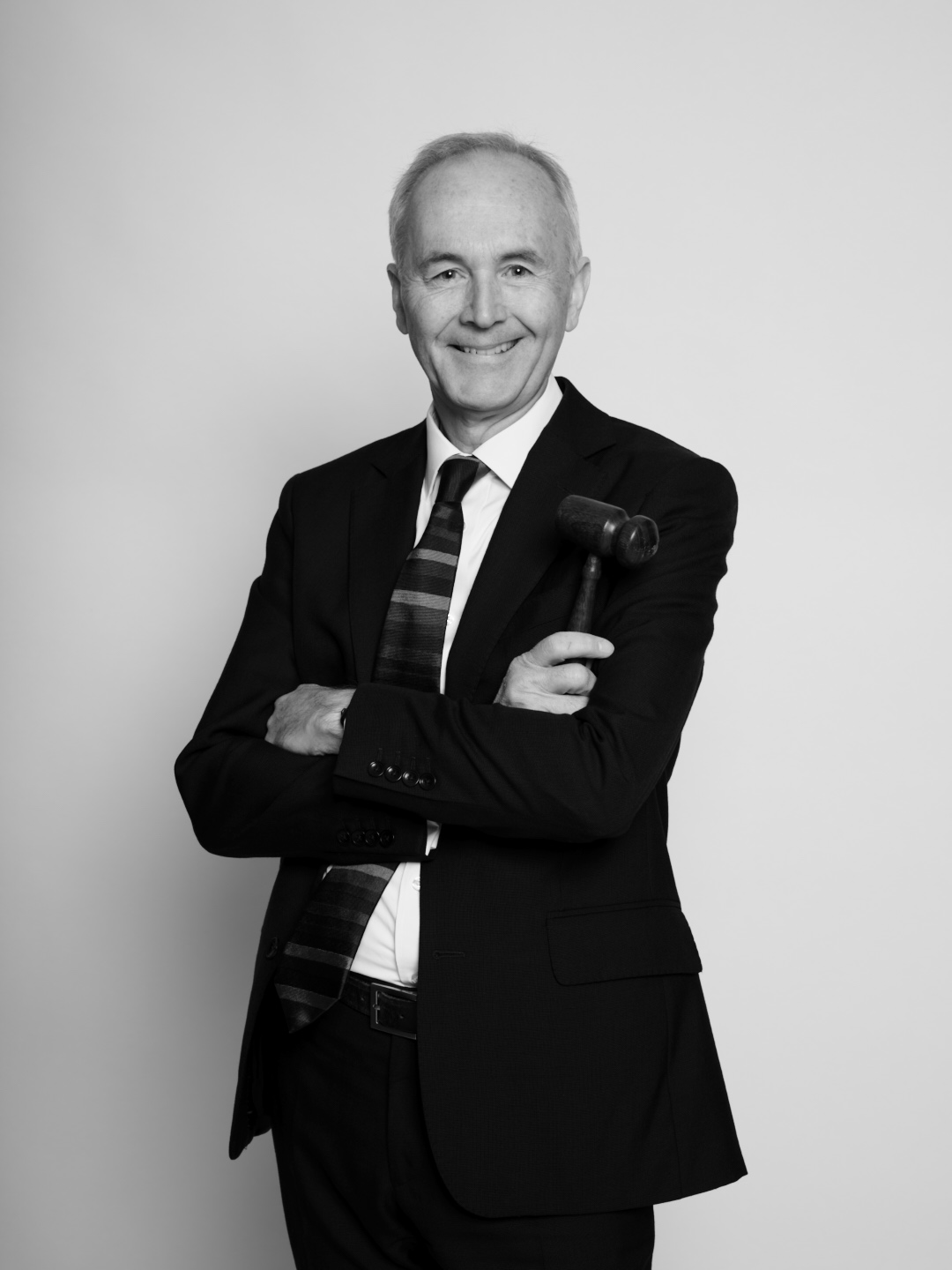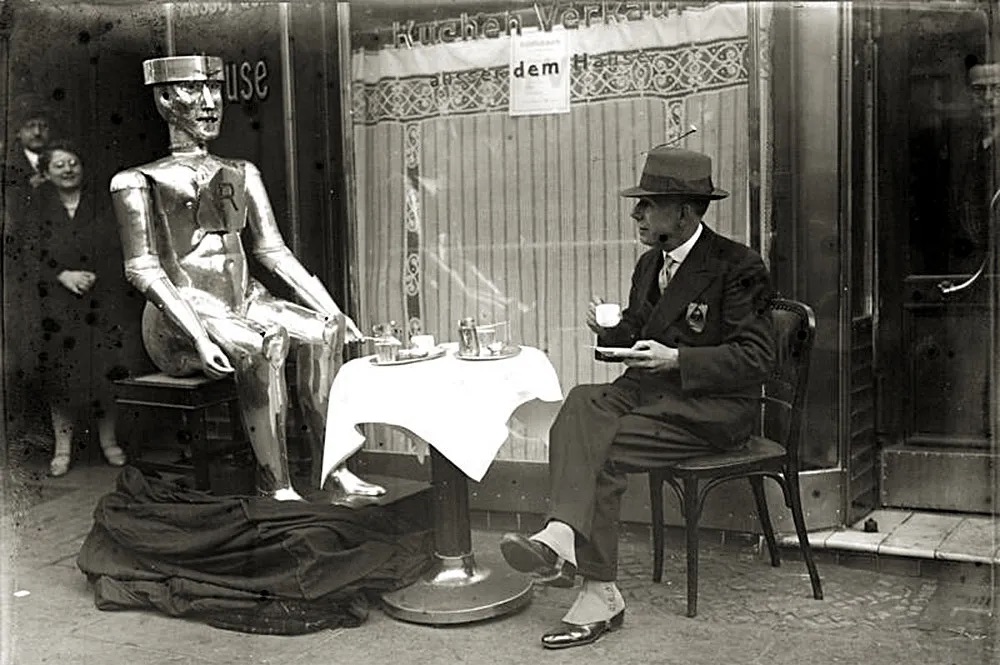
Icon of the Week – President of Wolfson College and Former Ambassador to Japan

Stupidly, I am sat facing away from the private lake and stretch of river that explains why Wolfson College are so much better than us at rowing (I go to Oriel, sorry).
Sir Tim Hitchens, KCVO, CMG is sat opposite me with quite a fancy coffee. I was offered one but have already had an espresso this morning and would get the shakes after another. Pathetic.
He is President of Wolfson College, he was Ambassador to Japan from 2012-2017, Deputy Ambassador in Paris, was posted to Pakistan and Afghanistan, has been Assistant Private Secretary to the Queen, and speechwriter to the Foreign Secretary Douglas Hurd. He also studied English Literature at Christ’s College, Cambridge but I decide to let this go.
Having recently read and watched Pachinko (until my free trial with Apple TV+ ran out), I am most interested in his experience in Japan.
As a teenager, Hitchens visited Japan because his father was the Royal Naval attaché to Tokyo. He describes Japan in the mid ‘70s as having a “strong aesthetic,” being “mesmerically attractive, full of intellectual challenges”. His “heart was grabbed” and he “never looked back”. Taking a gap year after school (“people really should take gap years” he returned to Japan and stayed with a Japanese family for seven months whilst teaching at a women’s university. Then, after studying at the other place, Hitchens applied to the Foreign Office, “was lucky enough to get in” and was put on the Japanese language course.
Hitchens “didn’t see [himself] as a linguist”, he only studied French, German, and Latin at school. Sounds like a linguist to me. But he loved learning an ideographic language and puts that down to having a mind that connects with visual memory. He praises the Foreign Office for his training at SOAS and in Kamakura, one of Japan’s ancient capitals. Hitchens describes an idyllic learning experience, a 12-month residential course with a teacher to student ratio of 1:1, in a traditional home with tatami rooms and beautiful gardens. Not quite the daily 9am Latin ab initio classes I endured throughout Michaelmas and Hilary in my first year.
“Do you still practice Japanese?”
“I still practice Japanese.”
Needless to say, I don’t practice Latin.
Hitchens is actually the chairman of the Daiwa Anglo-Japanese Foundation which sends British people to Japan for 18 months to have an immersive language experience. The foundations hopes that its beneficiaries “feel that Japan sits in their universe somewhere”.
After an economic boom in the ‘80s, Japan’s bubble economy burst in the ‘90s and people sometimes refer to the period from 1991 to the present as the Lost Decades. Hitchens has a positive spin to put on his experience as Ambassador to Japan, saying that he was “really lucky that I arrived in December 2012, just at the time that a new government under Shinzo Abe had been appointed. He was breaking the mould, promising to do things very differently, engaging internationally much more than his predecessors, and so everyone in the UK and the US and France and everywhere were really interested and that meant that as an ambassador, the analysis I was doing and the contacts I was making were really appreciated back in the UK. And as ambassador you feel your work is wanted, which is what makes the difference.”
In East Asia, there are several women ambassadors. Julia Longbottom in Tokyo, Caroline Wilson in Beijing, and Fiona Blythe in Ulaanbaatar. Historically, it seems the policy has been to appoint ambassadors who reflect a country’s values—in Japan these have perhaps traditionally been age, experience, and being a man. Hitchens sees one of the main challenges a woman ambassador to Tokyo might face as the language she uses. He tells me that in Japanese, there are different registers for women and men. A woman ambassador would have to ask herself: “Do I use the female register, which brings with it a sort of deferential tone” or “Do I use the bluff male tone which is more demanding?”. Julia Longbottom doesn’t use the deferential female register but doesn’t quite use the male register. When I look slightly lost, Hitchens elaborates on the differences between the registers; men and women have different words for ‘me’, women traditionally add more polite qualifiers at the end of sentences.
I ask if he struggled with transitioning between cultural norms when speaking Japanese and English and he says he finds it relatively easy to embody the culture of the language he’s speaking. However, throughout his career he did experience a few culture shocks. In Paris, he realised that in meetings you couldn’t wait for a silence to speak or else you wouldn’t get a chance. But in Japan, “the exact opposite applies” and you are expected to wait a certain amount of time before speaking. “And so, as foreigners in Japan, you get embarrassed by the silence and fill it with words and don’t actually give your interlocutor the space to feel comfortable to say what they want to say.” Hitchens also tells me a story about a wedding gift gone wrong. In Japan, it is customary to give money as a wedding present, he didn’t realise however, that traditional envelopes are decorated differently to indicate different amounts of money. “So, I bought what I thought was a really nice envelope and put what I thought was a decent amount of money in it.” Turns out the envelope implied the gift was more generous than it actually was. “Even now, I feel awful having done that.”
During his career as speechwriter for Douglas Hurd, Hitchens learnt that the best speechwriters are invisible. He describes the process as like being an “actor”, “it was all about getting rid of Tim Hitchens and inhabiting somebody else’s mind” which was “quite exhausting”. Ever the diplomat, he declines to comment directly on anyone’s speech giving. He does remark that “there are some people who are not high-flying rhetoricians. And I guess the Prime Minister at the moment is somebody who if he gave a speech that was soaring with lots of passion and values you’d think that’s not really him, is it. He’s somebody who feels something deeply but is practical.” Very tactful.
Tim Hitchens’ time in the royal household is particularly interesting considering King Charles’ recent trip to Australia and Samoa. Hitchens actually accompanied the Queen as Assistant Private Secretary on her Australian tour. Reflecting on Lidia Thorpe’s statement: “This is not your land, you are not my King,” Hitchens points out that the King was not in Australia “because London wanted him to go there, but because the Australian Prime Minister has invited him there.” He found his own experience there “very intellectually interesting, because although I was British, I was acting as an Australian.”
“Have you watched The Crown.”
“I have, yes.”
“Have you watched all of it?”
“Yes.”
Unfortunately, he doesn’t offer any observations on its accuracy. But when I recount how my parents complain about the later series, preferring a dramatised version of history to a dramatisation of events they lived through, Hitchens agrees. He thinks it’s interesting how The Crown initially explored Britain’s role in the world but became more insular as it went on, focusing on individual family members. On the topic of privacy, he considers: “If you are a politician, you know that your political career will last five, ten years” and then “a period of privacy that is coming” whereas as a royal family member “that period is never going to come.” For example, when the Empress and Emperor of Japan visited Oxford this summer, they did so after all the students had gone home for the vac and had a very stripped back programme, spending time at their own colleges and reminiscing on their time in Oxford. The Empress studied International Relations at Balliol and the Emperor a MLitt in History at Merton.
“Have you heard of a panic masters?”
“I haven’t but I can imagine,” he laughs.
Hitchens recalls how when he was an undergrad, “Third year was fundamentally both preparing for finals and getting a job.” Apparently, most of his friends had a job by April. The pressure’s on. I’m actually writing this when I should be writing my coursework. He continues, “Whereas now, I think people tend to focus really hard on their finals and then think about what comes next after that. So, if that’s what a panic master’s is for, I don’t think it’s a bad thing.” Excellent. Next year: sorted.
Apparently, the university actually has more postgrads than undergrads. Wolfson’s gender split is actually weighed in favour of women. Hitchens really values the diversity of a graduate college which has mostly international students and people at all stages of life, avoiding that volatile stage which he euphemistically describes as “from 18 to 21, 22, you’re doing a lot of working out who you are. And you’re making a lot of mistakes and working out relationships—it’s a very intense period.”
Tim Hitchens was “amazed to discover” that he was the first Head of House to complete the university’s LGBT+ Allies course as he assumed everyone would consider it an important policy point. He compares how many might view the Foreign Office as an archaic institution but notes that in some ways it is much more in tune than Oxford. He always thought that going on training courses like this one is “unremarkable”. He is also the Chair of the Joint Committee on student mental health which, during Covid, formed Common Approach which made clear the way in which students can access support from the right people. One of the main problems the committee identified was peer supporters feeling responsible for someone’s whole mental health.
When I ask what kind of relationship he had with Oxford prior to taking up his current role, he admits he “didn’t really have one” but “in spite of all the verbiage, Oxford and Cambridge are very similar places.” We were getting along so well until now.
Finally, Tim Hitchens describes Oxford as a “liberating place,” admiring the university’s decentralised system which means colleges and their governing bodies are relatively autonomous from the university itself. As a previous interviewee assured me he wouldn’t be leaving Oxford anytime soon—but is now set to become the next UN Emergency Relief Coordinator—I quickly check if Hitchens has a new career waiting in the wings. He promises he doesn’t. ∎
Words by Issy Proctor. Image Courtesy of Tim Hitchens.







